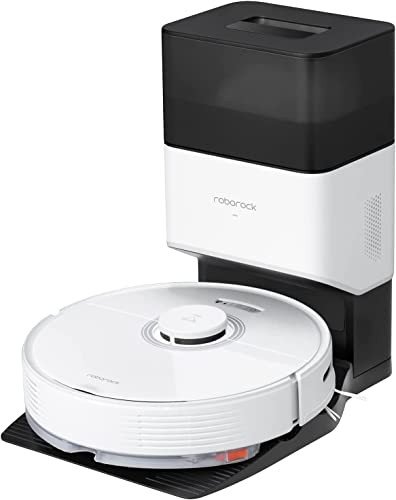A Proficient Rant About Floor Robot
The Rise of Floor Robots: A Comprehensive Guide
Over the last few years, the development of floor robots has actually transformed the landscape of home cleaning and maintenance. Armed with advanced technology, these smart devices are designed to lessen human effort while taking full advantage of performance. This article looks into the different elements of floor robotics, including their functionality, benefits, types, and considerations for buying one.
Comprehending Floor Robots
Floor robotics, frequently known as robotic vacuums or floor cleaners, automate the process of cleaning floorings in property and business spaces. They make use of a mix of sensing units, mapping innovation, and expert system to navigate, recognize dirt, and tidy numerous types of surface areas. This development not only conserves time but also enhances the efficiency of cleaning efforts.
How Do Floor Robots Work?
Floor robots operate through a combination of hardware and software application parts designed to optimize their cleaning abilities. Below is a streamlined introduction of their operational process:
Mapping and Navigation:
- Using Lidar, video cameras, or infrared sensors, the robot produces a map of the area.
- It determines and avoids obstacles, guaranteeing effective navigation.
Cleaning Mechanics:
- Most floor robotics are equipped with turning brushes or suction mechanisms to gather debris.
- They can vary their cleaning modes based upon the type of surface area (carpet, tile, etc).
Dirt Detection:
- Advanced models use dirt-detection sensors to identify greatly stained areas and tidy them better.
Self-Charging:
- Once cleaning is complete or the battery runs low, lots of robots instantly go back to their charging stations.
App Integration:
- Many floor robots come with mobile applications that permit users to schedule cleaning sessions, set cleaning modes, and display development.
Benefits of Using Floor Robots
The popularity of floor robots can be credited to several key advantages, consisting of:
- Time-Saving: Users can dedicate their time to more crucial jobs while the robot deals with the cleaning.
- Consistency: Robots can follow a routine cleaning schedule, ensuring a consistently tidy environment.
- Hard-to-Reach Areas: Floor robots can browse under furniture and into tight areas that traditional vacuums may have a hard time to reach.
- Reduction of Allergens: Regular cleaning helps in reducing dust and irritants, contributing to a healthier home environment.
- User-Friendly: With simple interfaces and app performance, floor robotics are accessible for users of all ages.
Kinds Of Floor Robots
There are several kinds of floor robots readily available on the market, each designed to accommodate different requirements:
Type of Floor Robot
Description
Best Usage
Robotic Vacuums
Primarily created for vacuuming carpets and hard floors.
Everyday cleaning of different surfaces.
Robotic Mops
Geared up with a mopping function for damp cleaning.
Perfect for tough surface areas needing damp cleaning.
Combination Robots
Integrates vacuuming and mopping performances.
Flexible cleaning for a variety of surface areas.
Specialized Robots
Created for particular tasks (e.g., animal hair elimination).
Houses with animals or particular cleaning requirements.
Factors to consider When Buying a Floor Robot
Buying a floor robot includes numerous factors to consider to make sure that the chosen design meets the cleaning requirements. Below are some aspects to keep in mind:
Floor Type:
- Consider whether the robot is suitable for carpets, hardwood, tile, or a mix of floor covering types.
Battery Life:
- Evaluate the robot's battery period to identify how long it can clean before requiring a recharge.
Suction Power:
- Higher suction power is crucial for efficient cleaning, especially on carpets.
Navigation System:
- A sophisticated navigation system contributes to effective cleaning patterns and much better barrier avoidance.
Dustbin Capacity:
- Larger dustbins require less regular emptying, which is practical for users.
Smart Features:
- Look for designs with Wi-Fi connection, app support, and voice control compatibility for added convenience.
Frequently Asked Questions about Floor Robots
Q1: How much do floor robots cost?A1: Prices can range from ₤ 200 to over ₤ 1,000, depending upon features and brand name.
**Q2: Can floor robotics tidy numerous floor types?A2: Yes, numerous robotic vacuums are created to be effective on both carpets and hard floors. Q3: How typically must I run my floor robot?A3: For ideal outcomes, it is recommended to arrange day-to-day or bi-weekly cleaning depending upon foot traffic and animal existence. Q4: Do floor robotics work well with pet hair?A4: Models particularly created for family pet owners include
more powerful suction power and special brushes to effectively remove animal hair. Q5: Can I manage my floor robot remotely?A5: Most modern-day floor robotics feature app connectivity, enabling you to manage them remotely from your
**smartphone. robot cleaner vacuum and mop of floor robots symbolizes a significant improvement in home cleaning technology. Integrating performance, user-friendliness, and advanced functions, these devices use a glimpse
into the future of home upkeep. As customers significantly seek options that save time and promote cleanliness, the floor robot market is poised for ongoing growth and development. With a variety of options readily available, comprehending their operations, advantages, and functionalities can help users choose the perfect addition to their cleaning routine.  ****
****